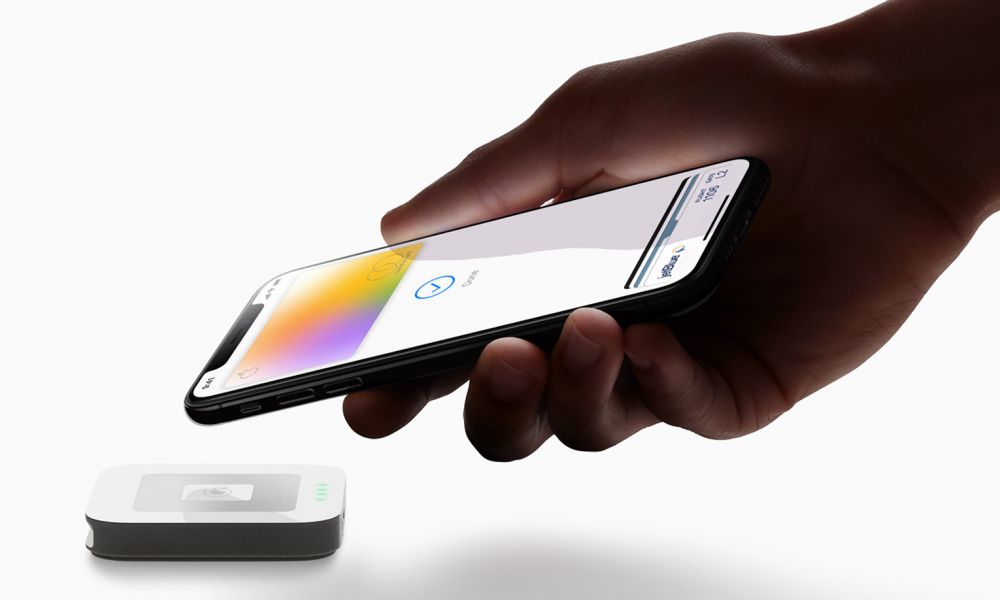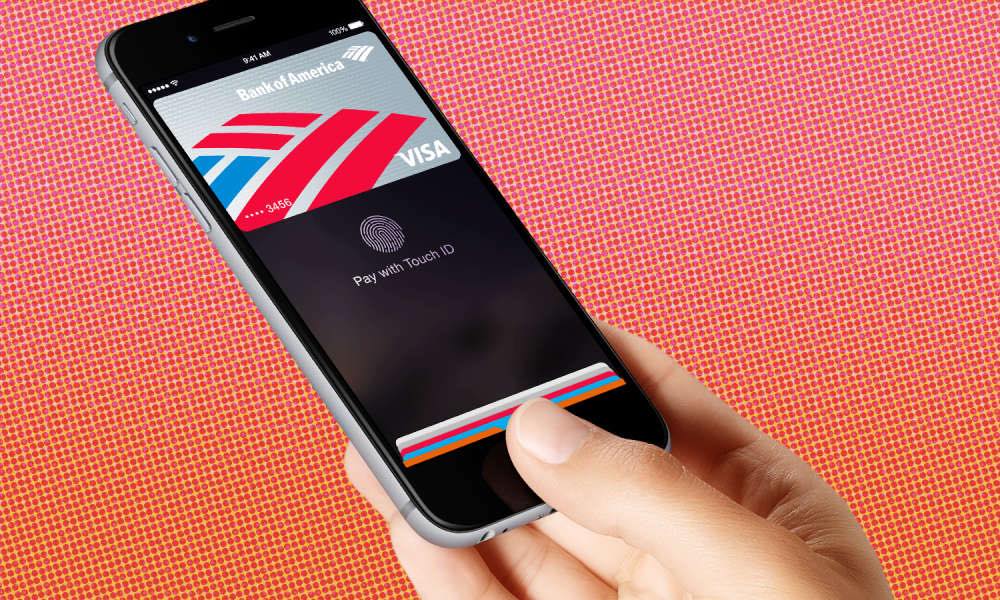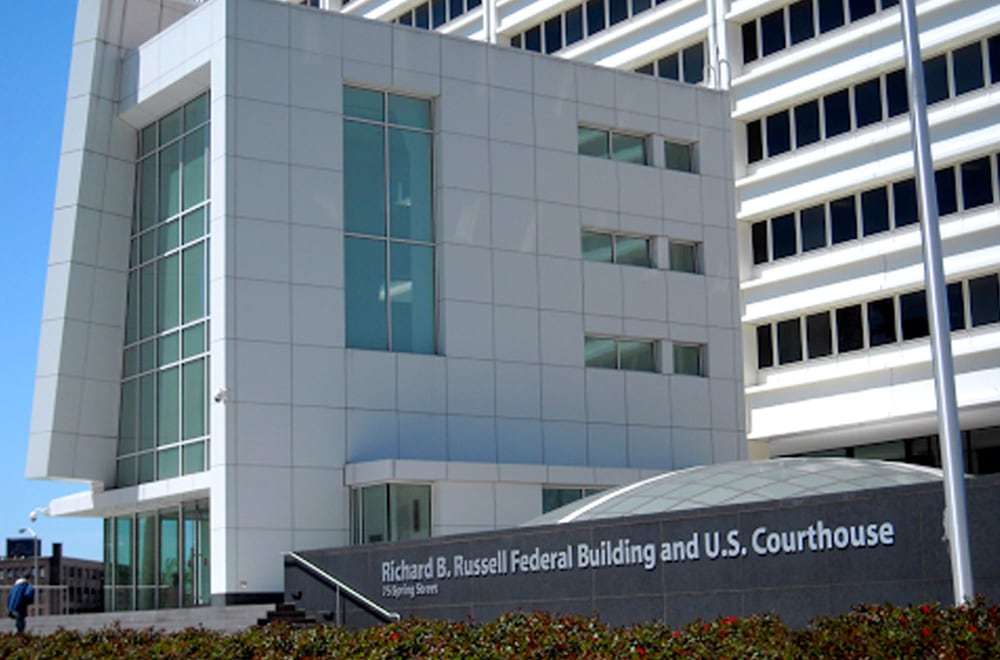Apple Slams ‘Mafia-Style’ Lawsuit over Apple Pay
 Apple
Apple
Toggle Dark Mode
As we reported on Friday, Texas-based company Fintiv has filed a civil lawsuit in the Northern District of Georgia, Atlanta Division, over Apple’s mobile payment solution. Apple Pay launched more than 10 years ago, in 2014, and this is just the latest in a string of lawsuits Fintiv has filed against Apple over Apple Pay since 2018.
In the years of courtroom defeats Fintiv has faced, this is the first time that Fintiv has accused Apple of trade secret theft. Also included in the new lawsuit are racketeering (RICO) allegations, claiming that Apple set up a fence by forming an “association-in-fact enterprise” with leading credit card issuing banks, like Citibank and Chase, as well as payment processing networks, like Mastercard and Visa.
Now, Apple is firing back. In a statement to 9to5Mac, the Cupertino firm said the Texas-based firm is simply trying to “distract from their failed patent case” with a new set of allegations.
“The court has repeatedly rejected Fintiv’s claims and we believe this latest attempt to distract from their failed patent case should also be dismissed,” Apple told the publication. “We launched Apple Pay over a decade ago and have been innovating every day since to give users the best, most private and secure experience available. We’ll continue to defend against these false claims.”
Fintiv’s Multiple Courtroom Losses
Fintiv first sued Apple over a single patent back in 2018 and has repeatedly tasted defeat in every lawsuit since. Texas Judge Alan Albright, who presided over the long legal battle in Texas, has twice ruled that Apple does not use Fintiv’s patented technology.
Albright’s rulings have hinged on one key point: While the Fintiv patent stores “account-specific information” like credit card numbers directly on a user’s device, Apple Pay does not and has never, stored that information locally, instead relying on a secure architecture that Apple says it developed on its own to protect the user’s privacy and security.

While Fintiv was able to get a Federal Circuit court to send part of the case back to the original judge for further review, Albright recently ruled in favor of Apple again in July that the iPhone maker had not infringed most of the Texas firm’s claims. At that point, Fintiv voluntarily dismissed its remaining claims with prejudice, rather than proceeding to trial.
Apple stated that it was ready to prove that it did not use Fintiv’s tech, and that the patent is invalid anyway, thanks to prior work by a firm called VivoTech.
Fintiv Throws a Legal Changeup With New Lawsuit
Now, Fintiv has filed its new case in a Georgia court, claiming that Apple’s 2011 to 2012 discussions with Fintiv’s predecessor, CorFire, allowed it to gain access to confidential technical information under non-disclosure agreements (NDAs). The lawsuit alleges that instead of licensing CorFire’s mobile wallet technology, Apple instead stole the confidential information, while also hiring away key CorFire employees.
Apple calls those accusations baseless.
Apple says that since the patent at the center of the original suit wasn’t filed until the same year Apple Pay launched (2014), it is impossible to relate the 2011–2012 events to the patented technology.
As for the hiring claims, Apple notes that one of the cited individuals never worked at Apple, another only worked in the Apple Retail division and never worked on Apple Pay, and the third individual joined the company after Apple Pay had already been developed.
Apple claims the racketeering part of the lawsuit is built on the same flawed narrative and has zero merit, just like the trade secret claims.
Fintiv Plays the Delay Game
Apple says that while it has been pushing for a trial date, Fintiv has repeatedly attempted to slow the legal process, including filing last-minute “emergency” motions in 2022 and 2025, making attempts to move trial dates, and even submitting a writ of mandamus to the Federal Circuit, which is generally a remedy used only in extraordinary circumstances.
Fintiv’s latest delay attempt came the day after jury selection, when the Federal Circuit Court rejected Fintiv’s writ. A short two days later, Fintiv dropped the suit, rather than facing a jury.
Fintiv’s Other Legal Battles
Apple is not the only company that has found itself in Fintiv’s legal crosshairs. In 2022, the firm sued payment company PayPal over five patents. Four of those were invalidated in court, and the fifth was later ruled invalid by the US Patent and Trademark Office. Both rulings were upheld by a Federal Circuit Court earlier this year.
Fintiv is also the defendant in a breach of contract lawsuit, filed last month by investment firm Oxford Gray, alleging that Fintiv defaulted on over $9 million in loans. The suit is related to what the US Department of Justice called a “scheme to defraud investors,” which led to a 2019 criminal indictment for Michael Liberty, who was the founder of Mozido, a mobile payments firm which was later renamed to Fintiv.










